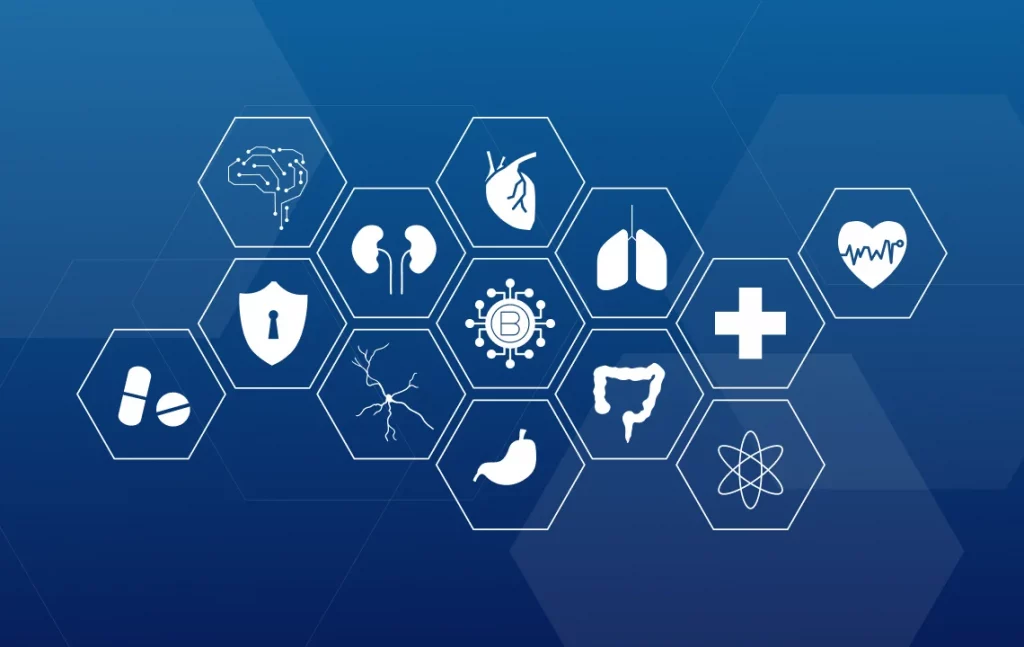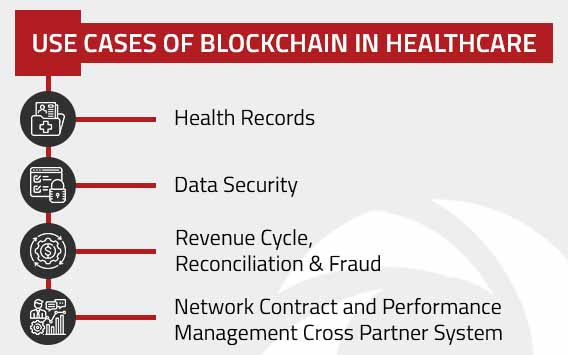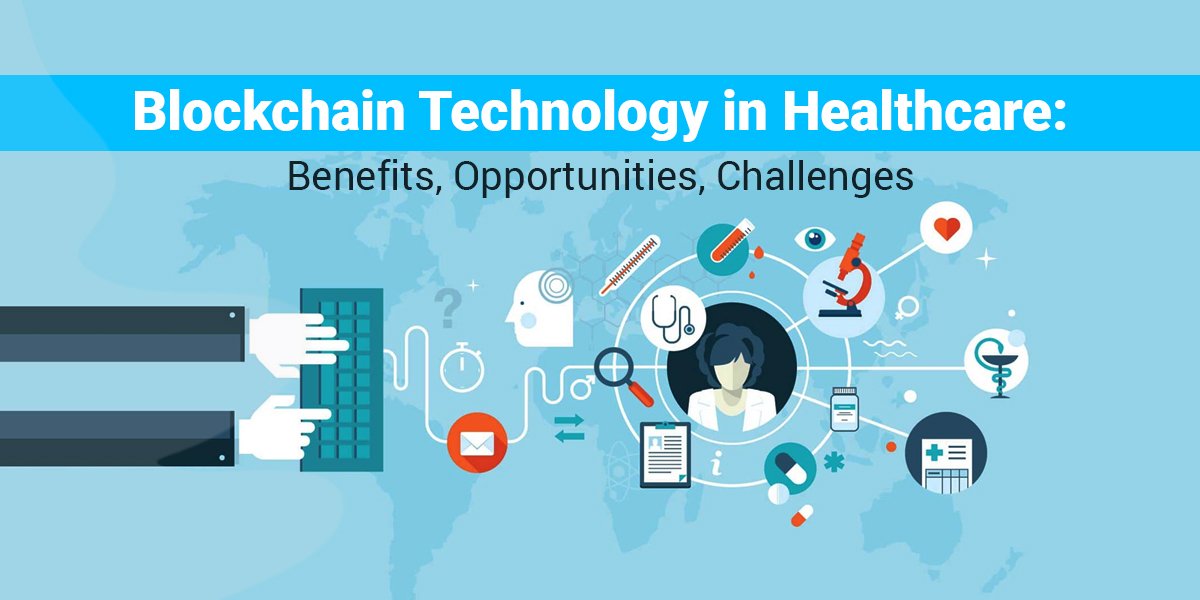In an era where data is king, the healthcare industry is no exception to the digital revolution. The need for secure, transparent, and efficient data management has paved the way for blockchain technology to make its mark in healthcare. Blockchain, originally developed to support cryptocurrencies like Bitcoin, is now at the forefront of transforming the way healthcare data is stored, shared, and managed. In this blog, we’ll explore ten intriguing use cases where blockchain is making a significant impact on the healthcare industry.
Blockchain Technology in Healthcare

Blockchain is a decentralized and distributed ledger technology that records transactions across a network of computers. It offers a secure and transparent means of managing medical data. It enables interoperable health records, streamlines clinical trials, ensures drug traceability, and enhances patient privacy. The technology also simplifies billing processes, secures telemedicine services, and facilitates research collaboration. However, regulatory compliance, data privacy, integration challenges, scalability, and interoperability issues must be addressed to fully unlock its potential in revolutionizing the healthcare industry.
This Blockchain Technology offers a myriad of advantages for healthcare, including:

- Interoperable Health Records: Blockchain enables the creation of a secure and interoperable health record system, allowing patients and healthcare providers to access and share medical data seamlessly.
- Drug Traceability: Pharmaceutical companies can use blockchain to track the production and distribution of drugs, ensuring authenticity and reducing counterfeit medications.
- Clinical Trials: Streamlining the process of conducting clinical trials, ensuring data integrity, and enhancing patient recruitment and consent management.
- Supply Chain Management: Blockchain facilitates the monitoring of the healthcare supply chain, ensuring the safe storage and transportation of medical products and equipment.
- Health Insurance: Simplifying claims processing and reducing fraud by validating patient information and treatment history on a blockchain.
- Telemedicine and Remote Patient Monitoring: Facilitating secure and transparent telemedicine services while protecting patients’ sensitive data.
- Healthcare Data Sharing: Allowing patients to control access to their medical data and grant permissions for data sharing, ensuring privacy and security.
- Identity Verification: Leveraging blockchain for secure patient identity verification, reducing administrative burdens and enhancing security.
- Billing and Payments: Improving transparency and efficiency in healthcare billing and payment processes, reducing disputes and errors.
- Research and Development: Accelerating medical research by securely sharing data among institutions, leading to breakthroughs in disease diagnosis and treatment.
Challenges in Implementing Blockchain in Healthcare
While the potential benefits of blockchain in healthcare are undeniable, there are significant challenges to overcome:
- Regulatory Compliance: Strict compliance standards must govern blockchain implementation in the heavily regulated healthcare sector.
- Data Privacy: Ensuring patient data remains confidential and secure while still being accessible when needed.
- Integration: Integrating blockchain with existing healthcare systems can be complex and costly.
- Scalability: Blockchain networks need to handle large volumes of data efficiently.
- Interoperability: Ensuring different blockchain systems can communicate and share data seamlessly.
Summary
Blockchain is set to transform healthcare with secure and efficient solutions for its key challenges. From electronic health records to drug traceability and clinical trials, blockchain has the potential to reshape the way healthcare operates.
Blockchain’s success in healthcare hinges on solving regulatory, privacy, scalability, and interoperability challenges while integrating with current systems. As the industry continues to evolve, the possibilities for blockchain’s role in healthcare are both exciting and transformative.
